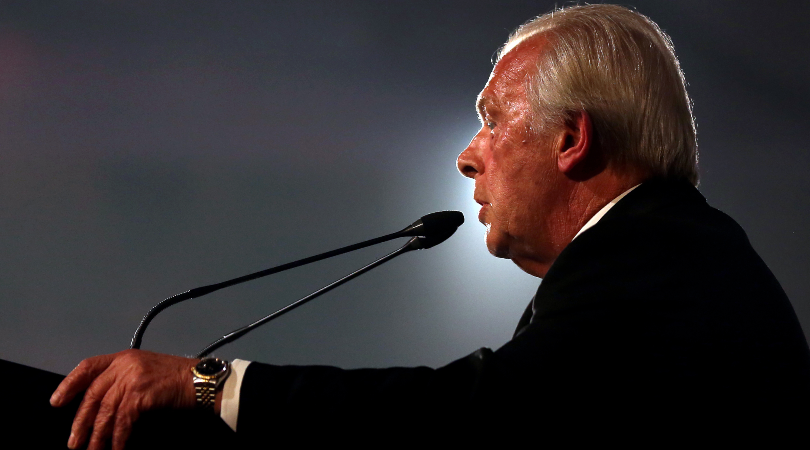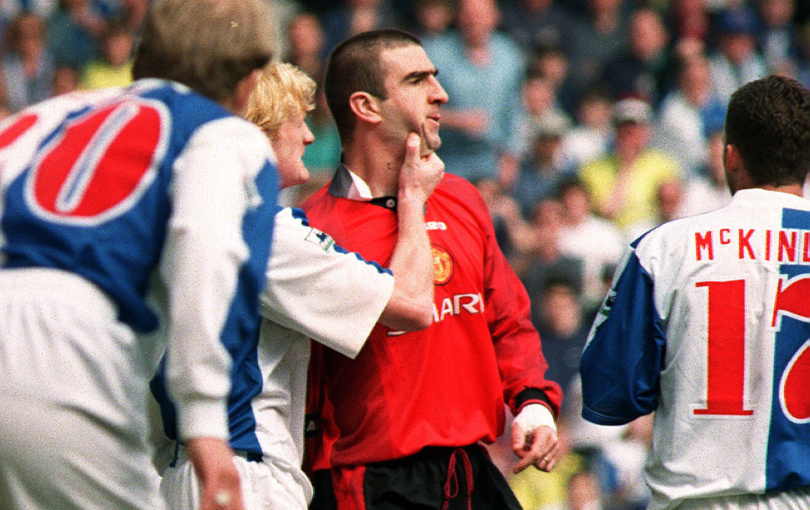Football’s financial response to coronavirus reveals the game’s leadership problem
The arguments over footballers’ wages and furloughed staff has become an ugly PR battle

Finally, a predictable moment. After all the uncertainty and chaos, at last, late on Monday night, football enjoyed a moment of normality.
No, Gordon Taylor will not be taking a pay-cut.
We get it. Taylor is not in a position to forgo or even defer part of his £2m a year salary, because doing so would create an unhelpful precedent for his members. It would be used against them and, as Taylor is keen to stress in every print or media appearance he makes, he’s obliged to take these bullets for the good of his union.
He must, whether he likes or not, struggle on at full-pay.
The optics of this situation are receiving plenty of reference at the moment. How it looks, how it seems – what kind of filter it’s applying to the visage of English football and what the repercussions of that altered impression might be.
The PFA’s response to the coronavirus pandemic has featured many words. Lots and lots of them. Some have been coherent, some not. Rather like what might happen were you to grab a fistful of letter magnets and throw them at your fridge. Somewhere within the gibberish – yes – there would be the odd kernel of truth and that has proven to be the case here.
Loss of salary does lead to a reduction in taxable income and, without question, the uniquely acrid environment within which English football is contested means that, inevitably, this is a situation which invites profiteering and politicking. The PFA is right to recognise that and right again to warn against it.
Get FourFourTwo Newsletter
The best features, fun and footballing quizzes, straight to your inbox every week.
But – those optics again – this is how it looks: the PFA is playing for time. Every few days, a new, reactive argument is introduced to begin another round of misdirection. The pandemic has been having a meaningful effect on European football since the middle of March – Bayern Munich’s Robert Lewandowski, for instance, made his €1m donation as far back as March 21 – meaning that organisations like the PFA have had plenty of time to outline their positions, debate and identify a coping strategy, and then plot a way forward.
And yet it remains an ad hoc discussion. There is still no clear position and the only fair conclusion to be drawn from that – the only logical one – is that this situation exists because the PFA hoped that it could be evaded. Maybe that’s entirely unfair, but based on what they’ve seen and heard, the public could certainly be forgiven for reaching that assumption.
To them, between the three warring branches of the game – the players, the clubs and the league – the only shared aim appears to be to emerge as the least damaged entity. Rather than reaching a truce and setting any sort of example, the sport is engaged in an ugly PR battle to avoid last place.
When are the grown-ups getting here?
Fortunately for the Premier League and the PFA, extremely wealthy clubs continue to furlough their staff and plunder the public purse – Tottenham are incredibly naïve if they think that will be forgotten any time soon – but the impression remains of a parlour game. These bodies are engaged in a decadent round of pass-the-parcel, in which nobody wants to be holding any sort of responsibility when the music stops.
Meanwhile, as these organisations attempt to manipulate and manicure this situation precisely to their liking – only football could attempt that with something as amorphous as a global pandemic – the rest of the country aren’t being afforded the luxury of designing and branding their own sacrifice. Every day in the United Kingdom is bringing another round of business closures and uncertainty and while that isn’t football’s fault or responsibility, that is nevertheless the context within which this morality bun fight is occurring.
That doesn’t justify the government’s approach. In fact, recent comments by Health Secretary Matt Hancock were a disgracefully transparent attempt to curry favour with narrow-minded voting communities. Football is not obliged to bail the country out. Or, at the very least, they are well down the list of people who should be tasked with that collective challenge.
At the same time, however, the sport would be better served by not mugging for the camera with that practiced look of incredulity. It would be preferable, for instance, for former England captains not to use ghost-written newspaper columns to admonish public sentiment and to spend time, instead, considering why that frustration exists in the first place and how – practically – it could be alleviated.
That would be more productive. The evolution it might catalyse would also be most welcome.
The game needs leadership and maturity. When Gordon Taylor spoke to FIFpro’s European congress five years ago, in 2015, he suggested that “the time is here to clean out the corruption and to place ourselves at the top table as guardians of the game. The time has come for players and their unions to seize the moment and bring a breath of fresh air, integrity and solid sensible leadership.”
But there is no fresh air. And there has been no sensible leadership or seizing of the moment. That time isn’t here, not even now.
While you're here, why not take advantage of our brilliant new subscribers' offer? Get 5 copies of the world's greatest football magazine for just £5 – the game's greatest stories and finest journalism direct to your door for less than the cost of a London pint. Cheers!
NOW READ...
CORONAVIRUS The biggest questions we have about the Premier League right now
QUIZ Can you name the 30 most expensive transfers of the past 12 months?
GUIDE Premier League live stream best VPN: how to watch every game from anywhere in the world
Seb Stafford-Bloor is a football writer at Tifo Football and member of the Football Writers' Association. He was formerly a regularly columnist for the FourFourTwo website, covering all aspects of the game, including tactical analysis, reaction pieces, longer-term trends and critiquing the increasingly shady business of football's financial side and authorities' decision-making.

